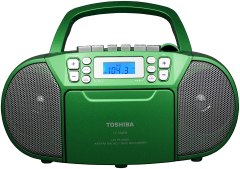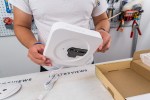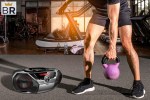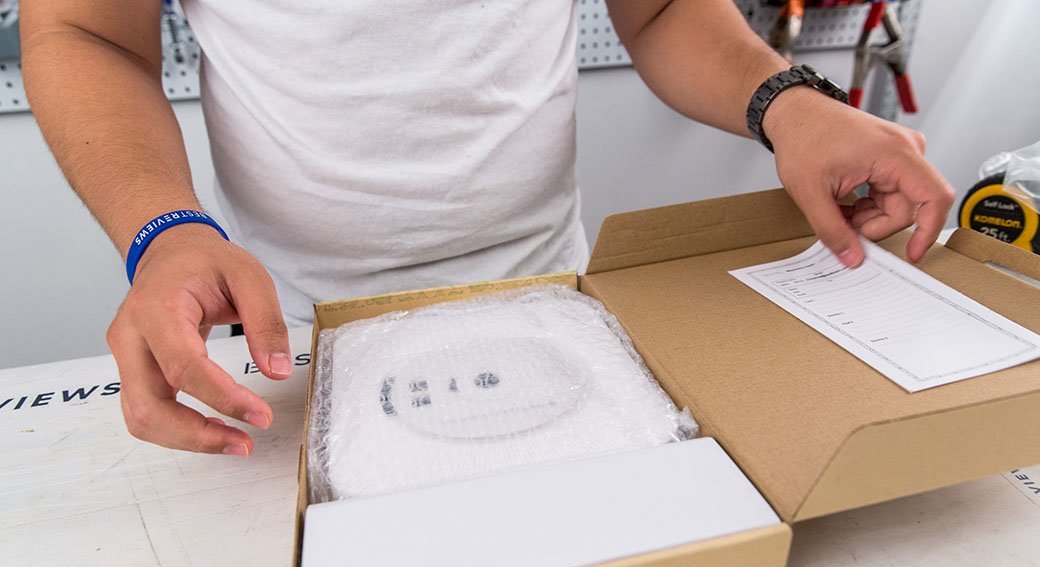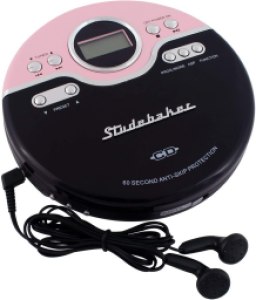Buying guide for best portable CD players
It's never a bad time to listen to your favorite songs, and with a portable CD player, you can hear those notes ring out whenever you want. Whether you're into Metallica or Mozart, Beyoncé or Brahms, a portable CD player allows you to enjoy your music on the go.
If you're going to spend money on a new portable CD player, you want to make sure you're getting a quality product that does what you want it to do and offers good value for your money. We aim to help you find the portable CD player that makes your heart sing.
At BestReviews, our in-depth shopping guides and product reviews are here for you when you need to make a purchase, whether big or small. All the products we test come straight off the shelves, bought with our own money, to avoid any potential bias that could arise from accepting free products.
Why buy a portable CD player?
It’s true that technology has moved on a bit since the days when every self-respecting teenager wore a Discman on her belt.
But that doesn't mean portable CD players are dead. You can still find plenty of good reasons to use a portable CD player.
-
Playing old CDs: Portable CD players are ideal for playing old music that you have on CD but don't have digitally.
-
Familiar technology: If you're not up-to-date with new technology, you may find a portable CD player easier to use than an MP3 player.
-
Portability: All-in-one portable CD players are for outdoor use, whether in your backyard, at the beach, or at a picnic in the park.
-
Versatility: Some personal CD players can be plugged into a car stereo, which is useful if yours only has a radio or cassette player.
Did you know?
Most portable CD players have a small display screen that lets you see the track number and other useful information. Some portable CD players are able to read the title tags embedded into a CD, so that the name of each song will be displayed on the screen as it plays.
STAFF
BestReviews
Types of portable CD players
Personal CD players
A personal CD player is a Discman-style player that you carry around with you to listen to music via headphones while you walk or on public transport.
Pros:
-
Personal CD players are extremely compact and lightweight, making them suitable for on-the-go use.
-
You listen to a personal CD player via headphones, so you don't disturb people around you.
Cons:
- Personal CD players don't have speakers, so they're only useful for listening to music by yourself.
Price: An average personal CD player costs between $25 and $60.
"Large buttons make a portable CD player easier to operate, especially if you have poor eyesight or issues with manual dexterity."
STAFF
BestReviews
All-in-one portable CD players
An all-in-one portable CD player is like a mini boombox with built-in speakers.
Pros:
-
All-in-one portable CD players run on battery power, so you can take them anywhere you please.
-
Due to their compact size, all-in-one portable CD players are small enough to take on a picnic or camping trip.
-
Since they have built-in speakers, all-in-one portable CD players are ideal for group listening or for when it's not convenient to use headphones.
Cons:
Price: Expect to pay between $20 and $100 for an all-in-one portable CD player. The cheapest models are often of poor quality, but you can find some decent models starting around the $50 mark.
When we research portable CD players, size is a primary consideration. We review compact options, like personal CD players, as well as larger models, like all-in-one portable CD players.
We want to learn about each portable CD player’s battery life so we can recommend a model that will deliver tunes for as long as you need it to.
Price is a key consideration when we research portable CD players. The average personal CD player costs $25 to $60, while larger all-in-one portable CD players cost $50 to $100.
If you want to be able to play burned CDs, you’ll need a portable CD player that can play CD-Rs and CD-RWs. We note the supported formats during our research.
We aim to discover the advantages and disadvantages of various personal CD players, which are compact and lightweight enough for public transport or exercise but don’t include speakers.
We appreciate a portable CD player with a built-in anti-shock system. This feature can help minimize skips during a workout.
If a CD player is too heavy for you to comfortably carry it, it defeats the purpose of being portable. Therefore, we note the weight of each portable CD player on our research list.
We look for portable CD players that offer warranties. A warranty can give you peace of mind, especially with a device that will be used outdoors or for exercise.
We consider the pros and cons of all-in-one portable CD players. These models have built-in speakers, but many people find them too heavy or cumbersome to carry around.
During our research, we look for durable portable CD players that can withstand a few bumps without breaking or damaging your CDs.
Considerations for selecting a portable CD player
Battery life
Before you buy a portable CD player, be sure to find out its average battery life and decide whether it fits your needs.
For instance, if you want a CD player that you can listen to all day at work, there's no point buying a model that only has a six-hour battery life when you work eight-hour shifts.
It's also worth looking at the type of batteries your chosen model takes. Some use regular AA or D batteries; others have proprietary battery packs, either internal or removable.
"Portable CD players with internal battery packs tend to recharge using a USB cable, which may or may not be included."
STAFF
BestReviews
Size
The main point of a portable CD player is that it’s just that – portable. There's no point buying a portable CD player that's too large to easily take from place to place.
Personal CD players are the most compact option for carrying around with you – most have a diameter just slightly larger than that of a CD and are around an inch thick.
All-in-one portable CD players are larger, but they aren't really designed for carrying around all day. Rather, most users take them from room to room or to another location, set them down, and listen to them.
"The "bass boost" feature is a good one to have if you enjoy music with heavy bass."
STAFF
BestReviews
Anti-shock system
A personal CD player should have a built-in anti-shock system to avoid skipping.
The trouble with personal CD players is that, if they get jolted or shaken around too much, the CD can skip. This can be a particular problem if you wear your CD player while running, jogging, or engaging in any other exercise that might shake the disc around.
A CD player with an anti-shock system actually reads and saves the information on the disc a few seconds in advance, so if the CD player gets jolted, the saved information will play and the listener won't notice that the CD skipped.
"Look for a portable CD player that makes it easy to adjust the volume on the body of the appliance."
STAFF
BestReviews
Disc formats
Some portable CD players can only read regular CDs, whereas others can read CDs in a range of formats.
If you have a collection of CDs that have been "burned” from your computer (rather than original CDs), you'll need a model that can play CD-Rs and CD-RWs.
You may also want a CD player that can tackle MP3 CDs, which let you store 100 to 150 songs per disc rather than around 80 minutes of music, which is the maximum a basic CD can hold.
Many all-in-one portable CD players come with a remote control for easy operation.
STAFF
BestReviews
Tips
-
Think about the weight of your chosen portable CD player. Make sure it's not too heavy to comfortably carry from point A to point B. Otherwise, the point of buying something portable will be defeated.
-
Look at quality and durability. Nobody wants to buy a portable CD player only to have it fall apart within several weeks. Look for a model that's well-constructed and durable enough to withstand a few knocks.
-
Consider where you'll be using your portable CD player. If you mainly want it for home use, size will be less of a concern than if you want to regularly take it out and about.
-
Check the warranty on your chosen portable CD player. While a warranty doesn't guarantee quality, it does give you some peace of mind. However, it's worth noting that you often have to register your purchase on the manufacturer's website in order to validate your warranty.
FAQ
Q. Are headphones included with a personal CD player?
A. Some personal CD players come with basic headphones, but we generally recommend using your own headphones for better sound quality. Quality headphones will mean the difference between rich sound and tinny sound, so it's worth using a decent pair.
Q. Are portable CD players easy to use?
A. Most portable CD players are very easy to use. The majority have separate buttons for each function – play/pause, stop, skip forward, skip backward – so you just need to press the relevant button and the player will do your bidding. That said, if you're ever unsure how to use your portable CD player, just check the manual for in-depth instructions.
Q. How easy is it to damage a portable CD player?
A. Some portable CD players are more rugged than others, but they're still far from indestructible. While most should be able to withstand a few bumps, be careful not to drop them from any height, as it's likely they'll break or at least suffer some nasty scrapes. With the exception of some weather-resistant models, most portable CD players don't take kindly to getting wet, so stow yours away safely if you're using it outside and it starts to rain.






